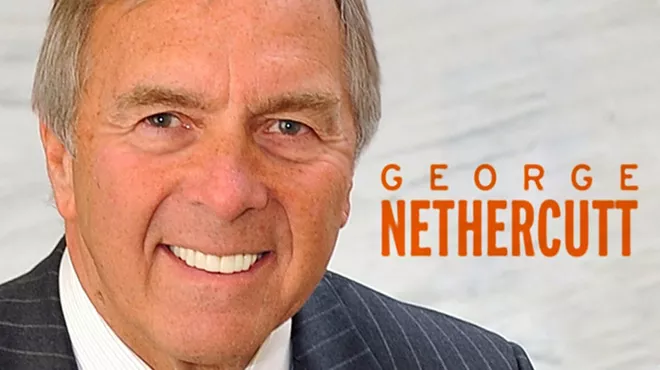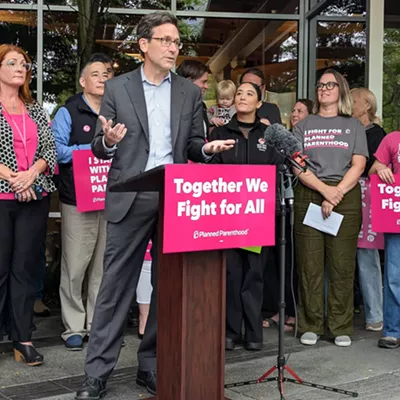A Spokane trial lawyer friend of mine believes President Donald Trump's State of the Union speech was an aberration, that Trump is incapable of conforming his conduct in office to the laudable points raised in his remarks. He may be right, but that was no excuse for Democrats to sit on their hands when the president made applaudable comments, devoid of clear political party hints or egotistical assertions. They should reward dignity, and Trump was dignified.
Democrats, if they intend to retake Congress in 2018, must stand for something other than "We're not Trump," because if one believes national polls, 75 percent of Americans watching or listening to the speech liked it, believing that Mr. Trump intends to compromise with Democrats to move America ahead. Recent resignations of luminaries such as Rep. Trey Gowdy and Rep. Rodney Frelinghuysen don't bode well for Republican victories in 2018. Republican office-holders, if they intend to keep their seats and the majorities they've enjoyed under President Trump, must decide if they're with Trump and the policies he articulated on January 30, or not. The resigning members, of which 34 or so are Republicans, are disgusted with the national political scene, specifically national polarization and conflict on most issues and policies.
Office-seekers must ultimately articulate policies that endear them to voters seeking change. A populist, President Trump appealed to voters as a "change agent," a quality endearing to many. Running against unreliable Hillary Clinton didn't hurt, either. Many voters in 2016 believed that America was on the "wrong track" and that change was necessary.
While Trump brought change to politics, many in the American electorate also seek normalcy, including dignity and progress, not incessant dissension. That's why so many in Congress are not seeking re-election — they desire progress for America, not just noise and conflict. Though Mr. Trump is a master at deflection and highlighting incompatibility, some office holders are fed up with it, believing there's a better way.
Some assert that politics today is "civilized fighting" — the effort to have one policy prevail over another, no matter the cost, and that if one hasn't the stomach for such fighting, one should avoid the political arena. More than anything, though, Americans want respect for their elected officials and desire for America to move forward.
The two aren't mutually exclusive — one can respectfully disagree with a political opponent without being disagreeable, or consider the opponent the "enemy." Today, conflict politics has entered the world of citizens and voters — it's not enough to disagree with a friend. Now if one disagrees with another American on a political issue, one hates the opponent, and vice-versa.
Years ago, deceased former Sen. Ted Stevens and deceased Sen. Ted Kennedy were close friends. They came from opposite ends of the political spectrum — Kennedy, a liberal spokesman and Stevens, a conservative Republican from a big state (Alaska) but a sparse population. Stevens got along famously with liberal senators Warren Magnuson, Scoop Jackson and Robert Byrd, then powerful majority committee chairmen. Why? Because none of these men put politics or egomania above the national welfare. They realized they were sent to Washington, D.C., to benefit America, instead of hating their political opponents because they philosophically disagreed. They realized that good elected officials were worth keeping.
Even though dislike has taken over Congress, as evidenced at the President's State of the Union remarks (one could feel the Democrats' disgust with President Trump, even though his remarks were largely "all-American"), voters can make a powerful statement in November 2018 by voting for candidates who love America and aren't resentful of their political opponents.
While there are those who will blame the current political climate on Donald Trump, voters are best served by selecting candidates who conduct themselves with the dignity due the high office they seek. Humility and dignity, hard work and a commitment to voters, not lobbyists or the president, are most important as they commit themselves to moving America ahead, not by fighting with their political counterparts, but through reason and commitment to principles that are good for Americans. Pundits will likely always question motivations, but for 242 years the American voter has chosen wisely for the times, selecting public officials who represent the best America has to offer.
The few "populist" office-holders who seek to break the political mold of dignity in office that has sustained voters since America was founded must not be allowed to diminish America's political system.♦
















